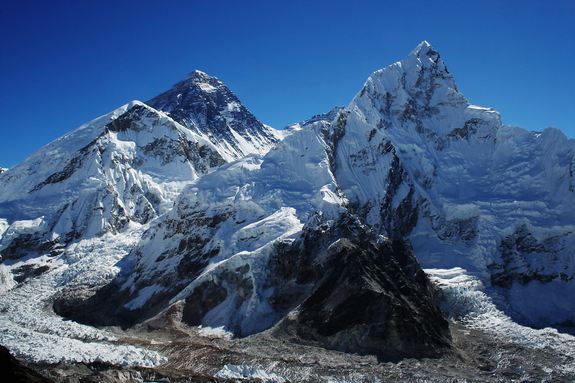Three years ago, Prof John Beddington, then chief scientist of the UK government, warned that shortages of food, water and energy would unleash public unrest, cross-border conflicts and mass migration by 2030.
At a recent conference on poverty and vulnerability in the Hindu Kush Himalaya (HKH) region, organized by the International Center for Integrated Mountain Development (ICIMOD) and Nepal”s National Planning Commission (NPC) in Kathmandu, Dr Bruno Messerli, former rector of University of Bern, recalled what Prof Beddington had cautioned in the 2009 conference on sustainable development. Putting Prof Beddington”s caution into perspective, Dr Messerli said, ´The food-energy-water security is intrinsically linked to the sustainability of mountains and mountain communities. Mountains could, therefore, play a very important political role in future.´ The opinion of Dr Messerli, who interacted with journalists on the last day of the conference, was unequivocal: much of resources like food, water and energy come from mountains and future public unrests cannot be averted without ensuring sustainability of mountains. However, as the world marks the World Mountain Day on Wednesday, concerns over sustainability of mountains still remain largely unaddressed in much of the HKH region. This is mainly because mountains form just small parts of big and influential countries like India and China in the HKH region, which also includes Nepal and Bhutan, where mountains characterize the countries” distinctiveness.
Only in the last few years, issues of mountains and mountain communities have started to draw the global attention. The ICIMOD-NPC conference on poverty and vulnerability in the HKH region, which was attended by representatives of 19 countries apart from international organizations and the United Nations (UN) committees, is just anexample of the increased global interest on the agendas of sustainable mountain development. Global warming, which scientists say is accelerating glacier melting in the Himalayas, has also contributed to the increasing global interest in mountain agendas. In its 2007 report that sparked controversy across the world, the Intergovernmental Panel for Climate Change (IPCC) had stated that the Himalayan glaciers could disappear by 2035 if the earth keeps warming up at the current rate. ´The IPCC may have got its mathematics wrong. However, it was right to highlight the threats to the Himalayan glaciers,´ said Phrang Roy, former Assistant President of International Fund for Agriculture Development (IFAD), who delivered a key note address at the ICIMOD-NPC conference. Experts, including Dr Messerli, say sustainability of mountains is a key to addressing poverty especially in the wake of global warming. They also add that inclusive development and strengthening democracy at the grassroots levels, among other factors, are imperative to enable the mountain communities to deal with the severe impacts of climate change. ´These are some recommendations put forth by experts in our conference,´ said Dr Dhrupad Chaudhary, program manager at the ICIMOD. ´We hope countries in the HKH region will take up these recommendations in formulating their development agendas.´ – Panos South Asia Climate Change Blog,Om Astha Rai




